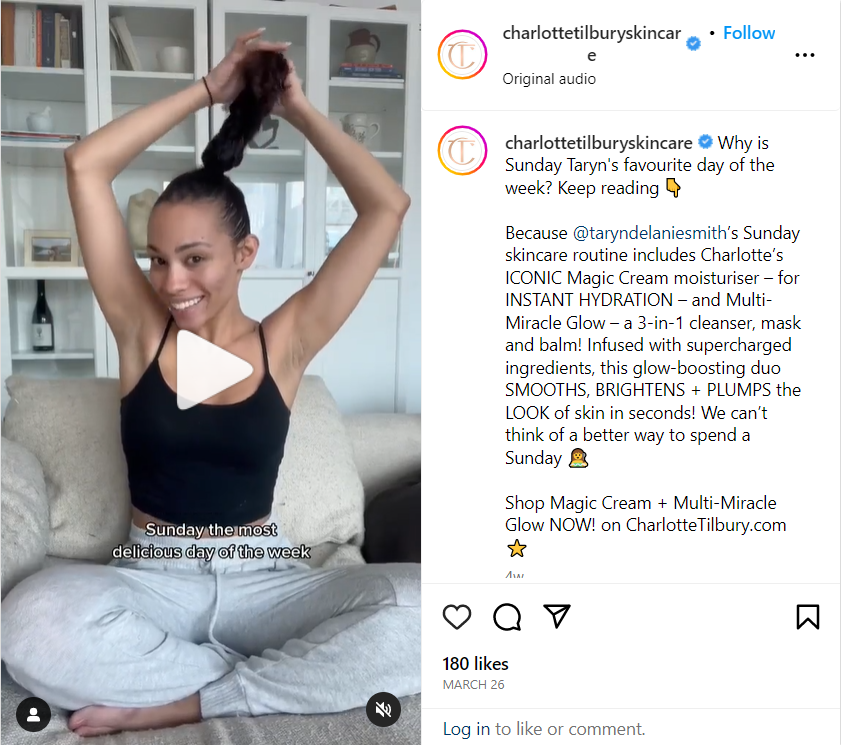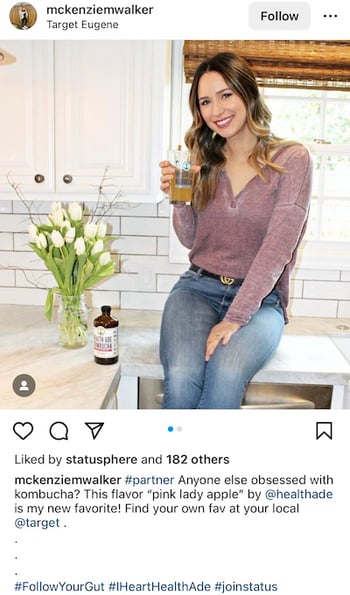- The Growth Tribe
- Posts
- 🤳🏻 5 Examples of Micro-Influencer Campaigns that Paid off
🤳🏻 5 Examples of Micro-Influencer Campaigns that Paid off
☕ The Growth Espresso Edition #58
Did you get this email forwarded? Join us here | Want to advertise with us? Let’s get in touch
📆 Friday, 9th February 2024
Hi, and welcome back to Growth Espresso - your one-stop destination for everything e-com.
Influencer marketing is becoming an increasingly crowded space — making it challenging to come up with unique, exciting, and engaging campaigns.
You want to stand out from the crowd but don’t want to try the same things everyone else is doing. Or maybe you’ve tried all the typical options and are ready for something different.
Whatever the case may be — we have got you covered. In today’s Espresso ☕️, we are discussing 5 micro-influencer marketing campaign examples that have done incredibly well so you can see what they did well and how you can apply it in your own business. Let’s go!
But before that, a little word from our sponsor today - Stack Influence
Send products to Influencers and 5X revenue!
Drive traffic to your Amazon store with influencer partnerships and 5X revenue. Boost your sales with our unique approach to influencers and UGC. Carefully selected micro influencers purchase your product and get reimbursed for their expenses only if they complete a social promotion.
See how brands like Unilever and Magic Spoon have been able to 5X revenue in 2 months and decrease ad costs using Stack Influence.
1. Collaborating with experts
Petco is a leading pet specialty retailer that provides food, supplies, services, and accessories for dogs, cats, birds, fish, and small animals. Petco’s eCommerce website offers a wide range of products, including food, treats, toys, bedding, and grooming supplies, among others.
The brand often partners with veterinary doctors to facilitate pet care for its customers.

Dr. Silva, the seasoned veterinary specialist pictured above, partners with Petco to address customer inquiries, particularly in pet dental care.
Why does this influencer marketing approach work? Three key reasons:
Boosts Petco's product credibility through expert endorsements.
Targets a niche audience with specific needs, like pet dental care, enhancing conversion potential and engagement quality.
Maximizes efficiency by collaborating with micro-influencers, known for superior follower engagement—up to 60% more than macro influencers.
2. Showing how products work
Charlotte Tilbury Skincare provides skincare solutions to customers with products such as face washes, moisturizers, and face masks. They partner with micro-influencers to show their target audience how their products work.

How-to videos from influencers makes the brand more appealing as it relays the message “tried and tested”
Here’s why this kind of promotional content works well for Charlotte Tilbury Skincare:
It tells exactly what one needs to do to get the most value out of their products and take care of their skin. This decreases the probability of negative user reviews.
It shows the effect of the product. In the above example, the influencer uses the product in front of the camera, which helps the viewers set the right expectations from the product.
It forms an emotional connection with the audience by openly showcasing their product.
3. ‘What I Bought vs. What I Got’ Campaigns
Consider how needless returns and poor reviews plague so many fashion brands. When fits don’t meet expectations, consumers are understandably disappointed.
Picture-perfect product shots and photoshopped models are the norm. We get it. But in-house creatives don’t always reflect exactly what customers are getting.
As a result, fashion brands turn to creators to show off what their fits look like on everyday consumers. This also explains the popularity of the “What I Bought vs. What I Got” trend on TikTok.
Brands like Aerie have made authenticity a cornerstone of their marketing strategy with the help of influencer content. The brand’s recent Mother’s Day campaign featured unfiltered creator content.
In these “fit checks,” creators introduced themselves and their mothers wearing Aerie’s products.

The Reel above is a textbook example of genuine content at work. Not sales-y at all. The mother-daughter angle also creates a sense of realness and relatability. Not to mention making it easier for shoppers to imagine themselves in Aerie’s fits.
This is one of our favorite micro-influencer marketing campaign examples because it’s so simple yet so effective. The post's engagement and positive comments reflect the power of real content from real people.
Takeaway for Brands
Authenticity matters. Consumers resonate with content that features people they can relate to. The more your influencers reflect your target audience, the better. Keeping it real with your followers via genuine influencers can do the trick.
4. Driving in-store Sales
The positive impact of creator content isn’t restricted to digital marketing. Transitioning online brand buzz into real-world action is also possible with the right creators.
For example, Health-Ade Kombucha wanted to drive brand awareness and conversions in seven key retailers. The goal was clear: target consumers who already drink kombucha and let them know exactly where to find their product.
Through an influencer marketing campaign, the brand got 30 micro-influencers to post about their brand in a 90-day period. The result was 60,000+ “Likes” and over one million people reached.

Source: @mckenziemwalker

5. UGC Content Creation
The boat shoe brand Sperry worked with more than 100 micro-influencers on Instagram. Sperry identified Instagram users who were already sharing high-quality photos of its products. The brand invited those users to develop visual content for its official Instagram account – for free. Their photos portrayed people wearing Sperry’s shoes in exotic or scenic locations, often at high altitudes.
The key lesson from Sperry is that there are times when the best micro-influencers are those who are already talking about your brand. What brand wouldn’t want to capitalize on a loyal customer and turn them into a micro-influencer?
The success of this campaign lies in the amount of engagement created at a low, or even close to zero cost. Sperry says it’s “Not all about ROI. We are constantly ensuring that we are (engaging) people.” User-Generated Content (or UGC) is significantly more powerful than branded posts, and Sperry has tapped into an abundant and authentic source.





Reply